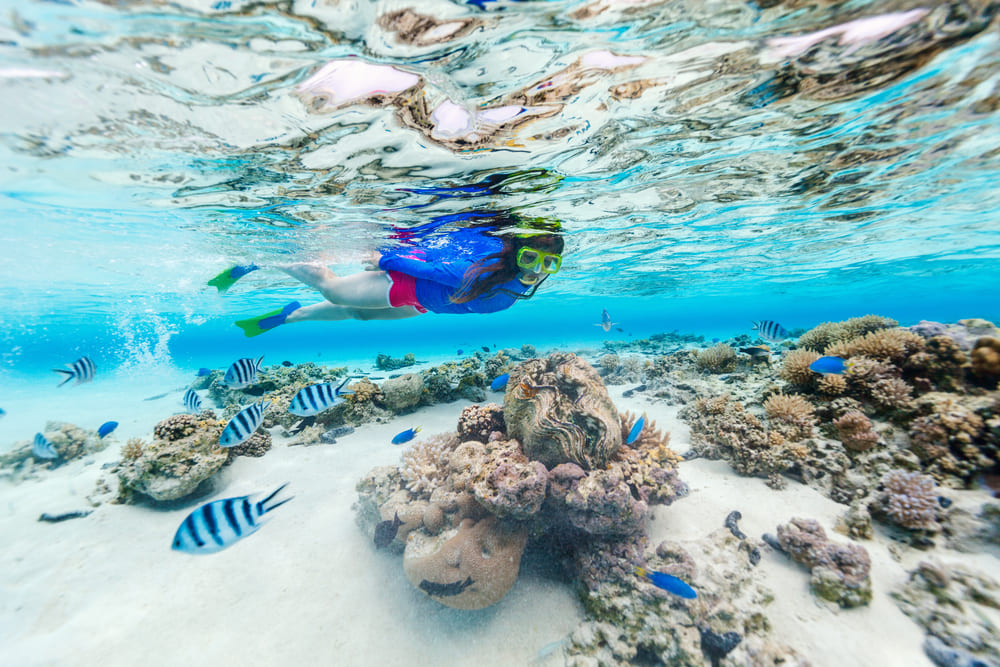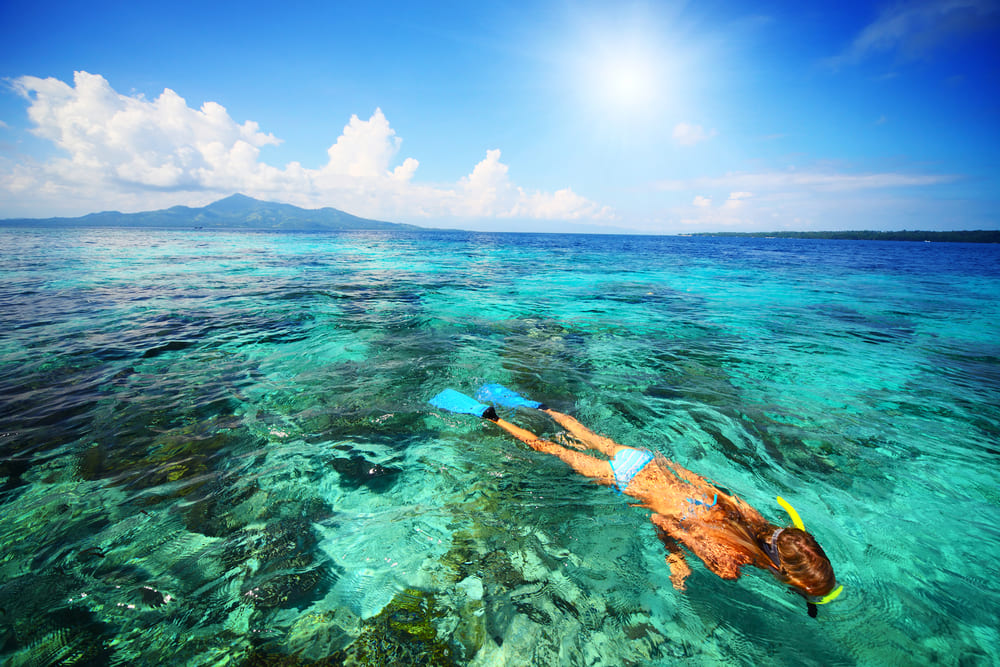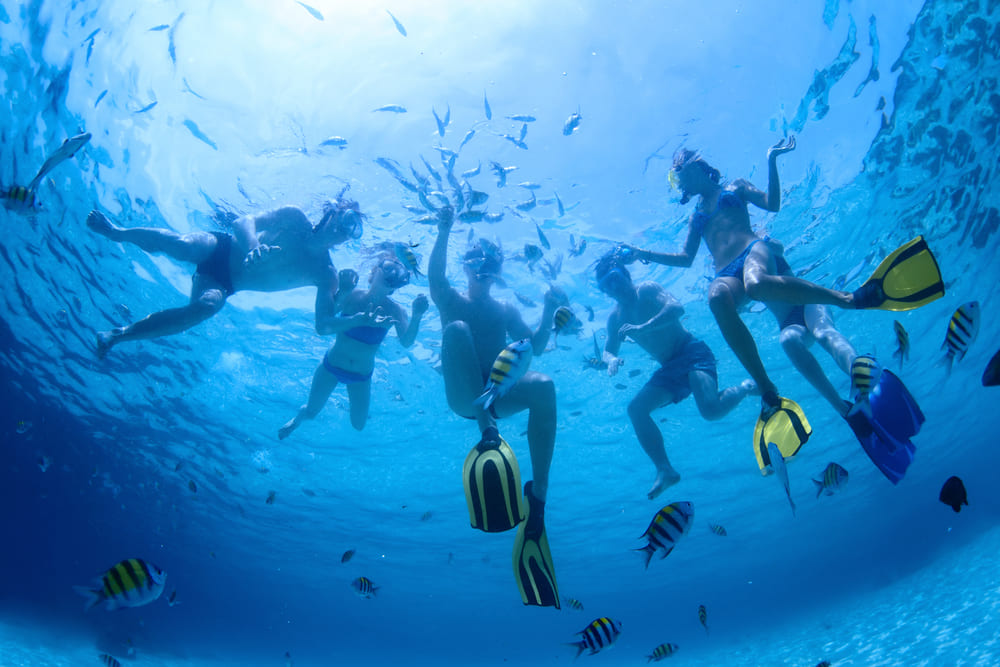DO YOU NEED TO KNOW HOW TO SWIM TO SNORKEL? UNVEILING THE CONNECTION

Ahoy, curious adventurers. Anchors away swashbuckling daredevils. Let’s dive into the depths of Captain Nemo’s locker room. And ponder what for the avid wandered to, well, wander those climates. Folks often ask if knowing how to swim is a prerequisite for snorkeling. Knowing your different strokes is a must for it. In this article, we’ll explore the fascinating relationship between snorkeling and swimming skills, unraveling the truth behind the age-old question: Do You Need to Know How to Swim to Snorkel?
The Difference Between Snorkeling and Deep Diving
Let’s come to terms with the basics of both activities, before we plunge into the depths of our exploration — let’s first clarify the distinction between snorkeling and deep-sea diving. Snorkeling is not akin to deep diving — it’s more like a leisurely stroll on the ocean’s surface. One running a race or climbing up a hill, or getting ready for a marathon. The other, snorkeling, is the proverbial walk in the park.
Equipped with a snorkel, mask, and fins, you can immerse yourself in the underwater world without the need for extensive diving equipment. Without the need for the sort of education that goes all, Tom Clancy starts explaining the difference between fantoms and miles.
But the question is — do you need to know how to swim to really get a hang of snorkeling? Of snorkeling. The short answer is NO. In a nutshell. Whichever way you slice it, it’s not a must for the activity — it’s not a do-or-die. There are workarounds when it comes to the issue of it. Hacks like using life-preservers, or snorkeling in very shallow depths.
Nevertheless, taking a page from Michael Phelps and knowing the basics of the dog paddle will give you a leg up out there in the drink.

Advantages of Knowing How to Swim When Snorkeling
Let’s immerse into the benefits of proficient swimming skills for your snorkeling adventure. As we said before, you don’t need to be a Mark Spitz or a Katie Ledecky, but it helps to know the 4-1-1 of swimming.
Let’s dissect some of the advantages.
Enhanced Confidence in the Water
The ability to swim confidently significantly enhances your overall comfort and enjoyment while snorkeling. You don’t need to be “The Baltimore Bullet”. With a foundation of swimming skills, you’ll navigate the waters with ease and grace — allowing you to fully immerse yourself in the underwater wonders.
Exploring Deeper Areas Safely
Proficient swimmers have the huge advantage of exploring deeper areas during their snorkeling excursions — they have that magic “It” that allows them to get a much more “immersive” experience when it comes to snorkeling. As you get away further from the shoreline, deeper into the deep blue, your swimming skills will give that extra plus. You’ll be able to uncover hidden marvels beneath the waves that are beyond the reach of non-swimmers.
Swimming with Currents and Against Them
One of the great things about swimming skills is the ability to navigate currents effectively — to understand what a rip-tide is and how to skate them. To know when things are getting hairy and to back away. This skill becomes particularly valuable during snorkeling, where understanding how to swim with and against currents ensures a smoother and more controlled experience.
Safety Measures When Dealing with Potential Dangers
The underwater world is filled to the brim with fascinating creatures and ecosystems, but it’s important to be aware of potential dangers — a swimmer might not know the difference between a snapping turtle and a box turtle, they might not understand that certain corrals are dangerous, but when push comes to shove and they get the warning, they’ll know how to pivot with more grace and control. Proficient swimming skills equip you to handle unexpected situations, such as encounters with jellyfish or navigating rip currents, with a sense of confidence and preparedness.
FAQ on Snorkeling and Swimming – Can you snorkel without swimming?
Can You Snorkel If You Can’t Swim?
Yes, snorkeling is possible even if you’re not the best swimmer out there — as long as you know how to float and move from point A to point B using your appendages then you’re fine. The key is to tailor your experience to your comfort level.
Should I stay Close to Shallow Areas?
If you’re new to both swimming and snorkeling, consider starting your underwater sojourn in shallow waters. In places, you can stand up on the water and feel the ground beneath your feet. This gradual approach allows you to acclimate to the underwater environment while feeling secure near the shoreline.
Talk to me about the buddy system, what is it?
Whether you’re a confident swimmer or not, the buddy system is a rule to live by while snorkeling — for that matter, if you’ve seen 127 Hours, this rule is a must for all potentially dangerous outdoor activities. Having a companion who is familiar with the waters not only enhances safety but also adds an extra layer of enjoyment to your experience.
Should I hire guided Snorkeling Tours with a Professional?
Exploring the underwater wonders doesn’t have to be a solitary pursuit. Consider a guided snorkeling tour led by experts who ensure a safe and enriching experience.
What types of risks while Snorkeling will I have without swimming skills?
Non-swimmers should be aware of potential risks associated with snorkeling:
- Getting Caught in Currents: Lack of familiarity with currents can lead to unintended navigation challenges, potentially causing discomfort or anxiety. Understanding how to navigate currents can greatly mitigate this risk.
- Difficulty Returning to Shore or Boat: Good swimming skills will provide you with the ability to confidently return to your starting point — even if you’ve ventured a bit further from theshoreline. It will give you an intuitive GPS.
- Potential Panic Situations: Challenging situations can trigger panic, especially if you’re not accustomed to the water. The biggest issue when it comes to snorkeling is panic — fear is your worst enemy. Proficiency in swimming can help you maintain composure – a level head – and navigate such situations effectively.
- Over-Reliance on Flotation Devices: While flotation devices offer valuable support, they should not replace the importance of swimming skills. Depending solely on flotation devices can limit your ability to fully enjoy and explore the underwater world.

Safety Measures for Both Swimmers and Non-Swimmers
Regardless of your swimming prowess, safety should be paramount during your snorkeling adventure. Here are some universal safety measures:
- Gear Check.
- Buddy System.
- Respect Marine Life.
Dive into Discovery
In the captivating realm of snorkeling, both swimmers and non-swimmers can uncover the beauty of the underwater world. As you embark on your journey, keep in mind the value of swimming proficiency and safety precautions. Whether you’re gliding effortlessly like a fish or taking tentative steps, the oceans hold secrets and wonders that are waiting to be explored. So, embrace the adventure, respect the waters, and allow the enchanting universe of snorkeling and swimming to unfold before you.
